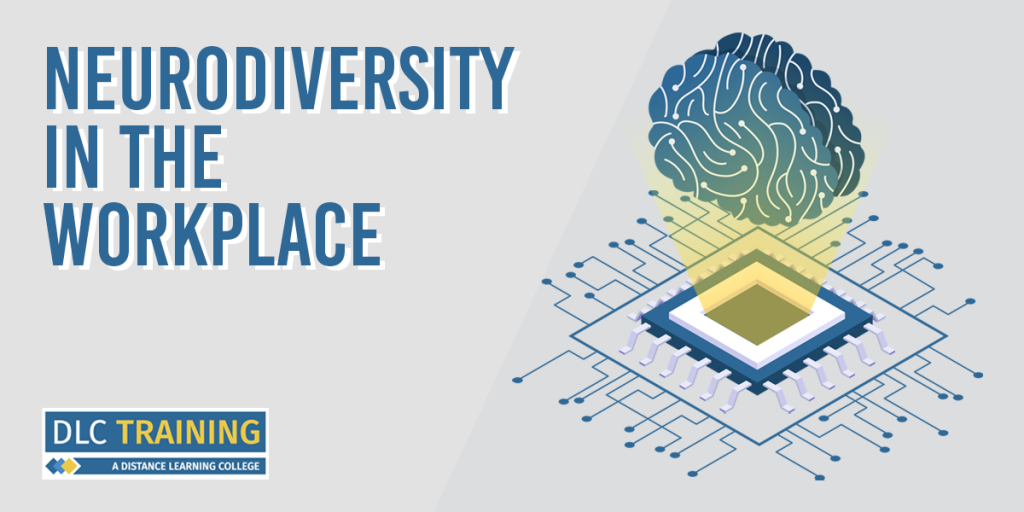Understanding and accommodating neurodiversity in the workplace is important for several reasons, all of which contribute to creating an inclusive and supportive work environment that benefits both employees and the company as a whole.

What is Neurodiversity?
Neurodiversity is a concept that recognises and celebrates the natural variation in neurological conditions, including differences in brain structure, function, and cognitive abilities. It emphasises that neurological differences are a normal part of the human experience, rather than being inherently “disordered” or abnormal.
Neurodiversity includes a range of neurological conditions and differences, including:
Autism Spectrum Disorder (ASD): People with autism may experience differences in social communication, sensory processing, and patterns of behaviour. Autism is often seen as a neurodivergent condition.
Attention Deficit Hyperactivity Disorder (ADHD): ADHD is characterised by difficulties with attention, impulsivity, and hyperactivity. Individuals with ADHD may have unique strengths and challenges related to their cognitive processing.
Dyslexia: Dyslexia is a learning difference that affects reading, writing, and spelling. It does not indicate a lack of intelligence; rather, it reflects differences in how the brain processes language
Dyspraxia: Dyspraxia, also known as Developmental Coordination Disorder (DCD), involves challenges with motor skills, coordination, and planning.
Other Conditions: Neurodiversity can also include conditions like Tourette syndrome, bipolar disorder, and more. The focus is on understanding and respecting the diversity of neurological experiences.
Why Does Neurodiversity Need To Be Accommodated In The Workplace?
In the workplace, the concept of neurodiversity recognises that individuals with neurological differences can bring valuable skills, creativity, and diverse ways of thinking to teams and organisations. Many companies are implementing strategies to support neurodiverse employees, provide accommodations, and create an inclusive environment that appreciates the strengths of all individuals, regardless of their neurological profiles.
What’s Already In Place For Neurodiverse Employees?
Several laws and regulations related to disability and equality in the workplace apply to individuals who are neurodivergent. Some key regulations and laws in the UK that are relevant to supporting neurodiverse individuals in the workplace:
Equality Act 2010: The Equality Act is a comprehensive piece of legislation that addresses various forms of discrimination, including disability discrimination. It requires employers to make reasonable adjustments to support disabled employees, which can include adjustments for neurodiverse individuals. Reasonable adjustments might include providing specific tools, flexible work arrangements, or additional support.
Access to Work Scheme: The Access to Work scheme provides financial support to individuals with disabilities or health conditions, including neurodiverse conditions, to help cover the costs of reasonable adjustments needed in the workplace. This could include assistive technology, communication support, or other accommodations.
Health and Safety Regulations: Employers have a duty to ensure the health, safety, and well-being of all employees, including those who are neurodiverse. This might involve making adjustments to the physical environment, such as reducing sensory stimuli or providing quiet spaces.
Code of Practice on Employment: The Equality and Human Rights Commission (EHRC) provides a Code of Practice on Employment that offers guidance on various aspects of equality and discrimination in the workplace, including disability-related issues.
Mental Health Considerations: While not exclusively focused on neurodiversity, employers have a responsibility to address mental health issues in the workplace. This includes providing a supportive environment for employees who may experience mental health challenges related to their neurodivergent condition.
The Benefits of Accommodating Neurodiversity in the Workplace
It’s more important than ever to ensure that every employee is able to thrive within their workplace, regardless of who they are. There are some key benefits to ensuring a company is more neurodiverse and to ensuring a company is more accommodating for those who are neurodiverse, too.
Some of the main benefits include:
Talent
Neurodiverse individuals often possess unique skills and perspectives that can bring fresh insights to problem-solving, creativity, and innovation. By accommodating their strengths, businesses can tap into a diverse pool of talent that can contribute to the overall success of the business.
Productivity
When employees’ individual needs are met through accommodations, they are more likely to be engaged, focused, and productive. Accommodations that match their work style and preferences can lead to improved task performance and overall job satisfaction.
Innovation
Neurodiversity encourages a wider range of thinking and problem-solving approaches. Different cognitive styles can lead to innovative solutions and a greater diversity of ideas, fostering a culture of creativity within the workplace.
Employee Wellbeing
Providing accommodations and support for neurodiverse employees can reduce stress and anxiety related to navigating challenges associated with their conditions. This, in turn, contributes to better mental health and overall wellbeing.
Diversity and Inclusion
Valuing neurodiversity demonstrates a commitment to diversity and inclusion within the workplace. An organisation that embraces a variety of neurological profiles enhances its reputation as an employer that welcomes people from all walks of life.
Employee Retention
When employees feel supported and understood, they are more likely to remain with the organisation. Accommodating neurodiverse employees can lead to reduced turnover, which in turn saves costs associated with recruitment and training.
Considering neurodiversity in the workplace goes beyond legal requirements and compliance. Removing barriers and widening the employment net can help increase the talent available and allow employers to tap into more creative, innovative talent. By fostering an environment that supports and values neurodiverse employees, a culture of inclusivity and diversity will help the business and its employees to thrive.
Discover more about how diversity and inclusion can form more creative, authentic teams in a range of business sectors with DLC Training.